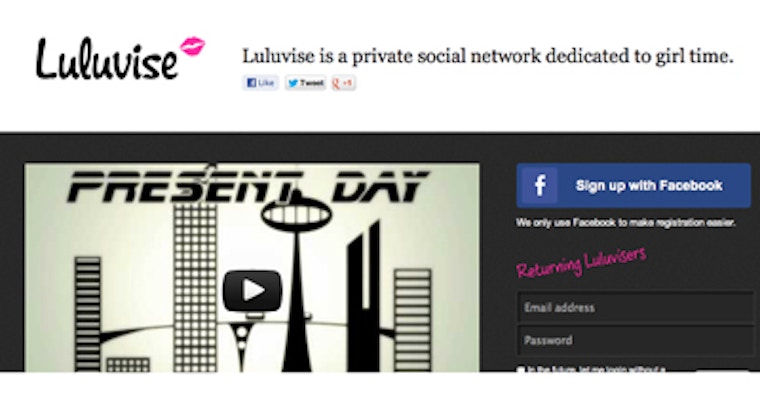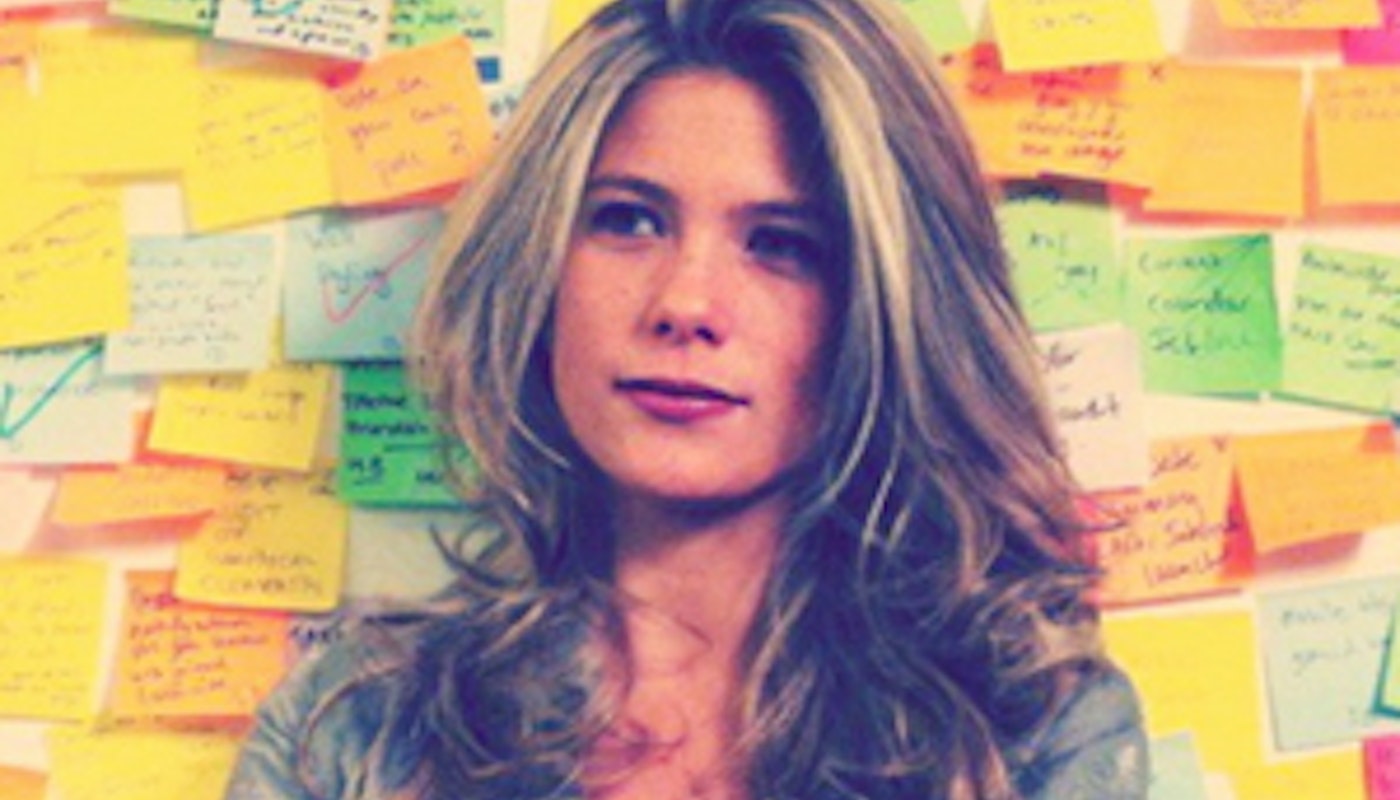
But firstly where did the idea come from? ‘It was post-Valentine’s Day, and I had a really fun, successful date the night before,’ Chong reminisces. ‘My girlfriends all knew about the lead-up; they were scattered around London and the world. I spent a good portion of my Sunday, post-Valentine’s, catching up with them, and I just thought, ‘this is so much fun, but super-inefficient’. I just wished that I had a more private place to have girl-time talk… And of course Facebook just didn’t feel safe; it didn’t feel private, it didn’t feel like it’s where I wanted to get into the details...’
The entrepreneur set to work... ‘I’d already worked at start-up before, it was focused on music licensing in particular. Their goal, their achievements; in particular their founder; he was a man on a mission… [Richard Corbett, founder of Ricall]. It hit me - I had the bones to be an entrepreneur, in many ways. I liked the challenge, the fight, the focus.’
After significant investment from angel Alexios Vratskides (Chong’s former boss and founder of Upstream) Chong bit the bullet. ‘He gave me my first $150,000, and he said, ‘Under one condition: you’ve got to move and get your first engineer and start developing now.’ The young entrepreneur heeded his advice, ‘The first thing I did was make some financial sacrifices. I cut my salary in half. I found a digital agency in London called Glow Labs. I gave them half of my salary, and every month I’d go after work, and on weekends, and we’d just start building. It was a mini-MBA. Then I decided that it was time to jump out of the plane officially, quit my job… Build my parachute on the way down.’
By July 2011, Chong had raised her first million from two micro based funds [Passion Capital and ProFounders Capital]; within three months the product was ready to be launched on the web; some seriously speedy work; but if Chong’s work ethic is anything to go by, no great surprise. ‘It was intense. We were working really late, weekends. Then, just before the launch date, (David) Cameron came to the office, and gave us that boost of encouragement – that what we were doing was good, was exciting…’
Praise from the Prime Minister proved to be a useful motivator, the beginning of a long journey; overcoming the challenges of a fledgling start up; one that has now grown exponentially. ‘My life really does revolve around Luluvise, and my business. All my time has to be dedicated to that. Sometimes that’s not the choice for every single female out there. Some people make other life decisions, and I respect those. But it’s not easy.’
HR in particular has been a steep learning curve; ‘I have to make sure that everybody’s really happy and they’re all really challenged and they work together and we have a really nice working environment. It’s not just about finding great people, but also retaining them. That’s why I have ultimate respect for the HR role. It’s the engine that keeps the company going.’
The entrepreneur has more than risen to the challenge, but what advice would she give those wanting to follow in her footsteps? Specifically for gaining investment? ‘Take more money in the beginning. Whatever you think you need, you should times it by two... Very few companies out there are able to crack it on their first time. You’ve got to improve your service, improve your product, take learning from your customers, from your users, and for that, you need time…’
‘Use investment pitching as a way to refine your concept, your idea, and your beliefs,’ she continues. ‘It’s a challenge. Every single time that you have a meeting - your idea, and you, are tested. That’s something I really learned. I’m a first time entrepreneur, and more than anything they’re looking at the entrepreneur. They’re looking at why should they give you money?’
Now back to the bête noire: Luluvise’s magical USP, the Wikidate database. ‘We wanted to empower girls with information,’ Chong says confidently. ‘We have this ability to generate data, so why not be able to share it amongst other girls? It goes to the idea of collective wisdom.’ Fair enough, but what of the fact that there’s some scope for slander amongst disgruntled or merely dishonest females looking for a bit of light entertainment? ‘We never intended it to be a mean tool, we intended it to be a fun tool… When Facebook came up with “tagging,” everybody was horrified. Then everyone got over that and got used to it. For us, WikiDate was always meant to be something girls do anyway. We’re just making that into a more efficient tool to enhance that experience.’
Incorporating a ‘removal request facility’ seems to have placated the naysayers, that is if you know you’re on the database, which involves either Googling yourself or being told, meaning men could be featured for a significant period of time before realising. ‘The last time I checked, which is probably a couple of months ago, I think we had about sixteen requests to be removed, and there’s thousands of guys on the database. Like every service, it’s not everybody’s cup of tea. You can’t please everybody.’
Fighting talk indeed, and Chong is nothing if not a fighter, one who uses her experience in the cutthroat world of women’s tennis to inform her practice in the boardroom. ‘I had a meeting with quite a famous investor, a revolutionary investor, Yuri Milner, we talked a lot, and I mention this in my articles so many times – he was very curious, and created quite a lot of analogies between how I think as a tennis player and how I operate the business. Athletes are entrepreneurs in their own right. They have to train and prepare and be focused and not be distracted, and keep their bodies and their minds in a place that is very, very targeted. Tennis in particular was a very mentally gruelling sport. You’re out there battling by yourself, and you’ve got to get through stages; train for hours a day, and be really focused on that.’
There it is, the mindset, the work ethic that has allowed Chong to thrive in an otherwise saturated market. I can’t help but feel moved; controversy or not, in these Notting Hill offices it seems there’s some serious girl power at work.
July 2012.
There it is, the mindset, the work ethic that has allowed Chong to thrive in an otherwise saturated market. I can’t help but feel moved; controversy or not, in these Notting Hill offices it seems there’s some serious girl power at work.
July 2012.
Interview by Alice Kahrmann

